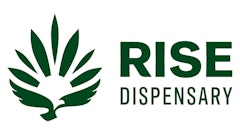MIAMI, Florida, June 9, 2022 - PRESS RELEASE - Parallel, a multi-state medical cannabis operator, announced today the opening of a new Surterra Wellness (Surterra) medical cannabis dispensary in Miami, Florida, becoming the third Surterra location in the Magic City. The dispensary is located at 10755 Southwest 72nd Street, known locally as Sunset Drive. The grand opening celebration and ribbon cutting ceremony will take place Thursday, June 16, 2022, with the unveiling of a special art creation for Surterra by internationally known, local artist Douglas Hoekzema, aka Hoxxoh.
"As Surterra continues to expand its dispensary locations across Florida, we're excited to increase our presence in the sunny home to hundreds of thousands of Miami residents who seek high-quality medical marijuana products, which we're proud to provide," said Parallel CEO James Whitcomb.
The new Surterra dispensary is conveniently located among the suburbs of Kendall, Pinecrest, The Hammocks and South Miami, and is easily accessible to the I-95.
Surterra is committed to wellness, providing medical marijuana to patients in need, and bringing people together to celebrate the arts–showcasing both emerging and established artists. Hoxxoh, who will create a special work of art on location, the day of the new dispensary opening, started his career in Miami, where he continues to create today. Internationally known for his murals and spray work, he weaves his paints like a human loom to chronicle the passage of time, using nontraditional tools to push boundaries to find equilibrium. Surterra embraces his talent and artistic message, understanding the deep connection between art and wellness.
"We're thrilled to open a third Surterra location in Miami, complimented by the meaningful artwork from a local artist. Our new dispensary increases access to the world-class products and service for which Surterra has become known," said Zack Fleming, Surterra president. "We welcome all registered patients and also look forward to assisting in the qualification process for new patients."
In celebration of the store's grand opening, patients will enjoy 42% off all items (excludes accessories) and double loyalty points for the entire day of the grand opening. Loyalty rewards allow shoppers to save more when they spend, with 1 point awarded for every $1 spent and at 500 points members receive a 10% discount, which can be stacked for more savings. They will also have branded giveaways for early shoppers. Surterra welcomes anyone 18 and older in its stores so that they can ask questions and learn more about products directly from their highly educated staff.
Surterra's Artist Showcase, a state-wide initiative, is kicking off at the new Miami location and actively looking for local artists to put their work on display in Surterra stores for up to four months. Selected artists will gain exposure to new audiences in the store as well as through Surterra's email, subscriber lists and popular social media channels. As an ambassador of the artist Showcase, Hoxxoh will engage as a curator of the program and occasional collaborator with artists. Interested artists can apply at www.surterra.com/artist-showcase/.
The new Miami dispensary is currently open. Days of operation and hours are Monday through Saturday from 10 a.m. to 8 p.m. and Sunday from 11 a.m. to 5 p.m. Patients who are registered in the state of Florida with a medical cannabis card are welcome to purchase. All other visitors are welcome to seek consultations.

























